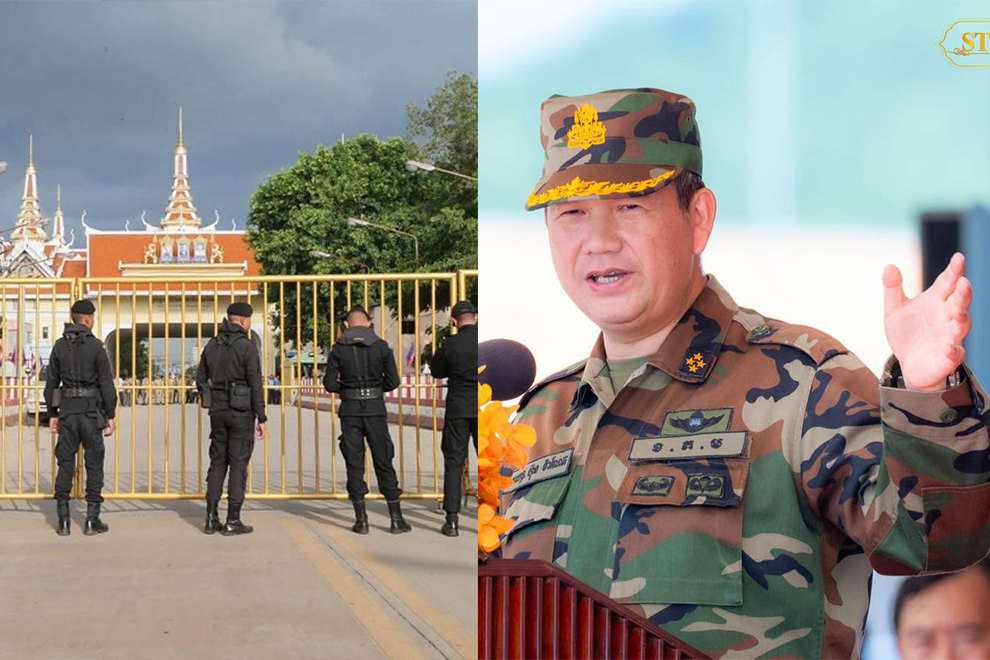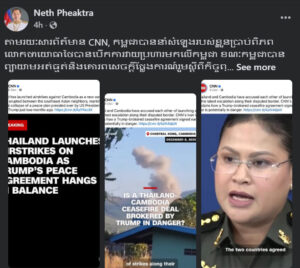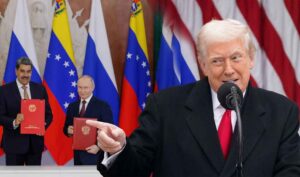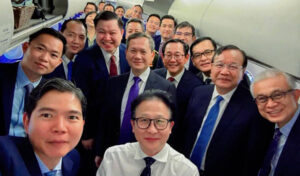Opinion: Three Conditions for Border Peace: PM Hun Manet’s Firm Yet Fair Stand
A Thai border crossing is sealed by guards. Prime Minister Hun Manet has repeatedly called for the crossings to unilaterally reopened. FB/SPM
The Phnom Penh Post | As tensions persist along the Cambodia–Thailand border, Prime Minister Hun Manet has offered a clear, principled and peaceful path forward. Speaking at the 32nd Anniversary of the Royal Gendarmerie in Kampong Chhnang province on July 14, he outlined Cambodia’s unwavering position: if Thailand genuinely seeks regional stability and cooperation, it must meet three conditions for the full reopening of the border.
This is in response to the unclear and divided statements made by the Thai government official and Thai military regarding the opening and closing of the border. Cambodia’s position remains unchanged: Thailand unilaterally closed the border, and therefore, it must unilaterally reopen it first — without any negotiation with Cambodia.
Cambodia’s position is grounded in facts, fairness and a commitment to peaceful relations. The closure of the border was initiated unilaterally by Thailand on June 7; therefore, any reopening must begin on the Thai side. As Manet emphasized, “The key is already in Thailand’s hands — just unlock it and restore the situation to how it was before June 7, 2025. There’s no need for further talks or concessions.”
Cambodia’s Three Conditions for Reopening the Border are 1. Thailand must unilaterally reopen the border and guarantee it will not close it again unilaterally. 2. All official border checkpoints must be reopened, without exception. 3. Border operations must return to the pre-June 7 schedule of 6am to 10pm. These conditions are not demands. They are expressions of responsibility and fairness — designed to protect both countries’ interests and uphold the dignity of border communities.
Thailand Must Take the First Step — Unconditionally
It is an undeniable fact that Cambodia has never initiated any border closure. Since June 7, it has been Thailand that unilaterally shut down key crossings, without consultation or coordination. In contrast, Cambodia has consistently pursued peace, mutual respect and dialogue.
Manet has rightly insisted that Thailand must take the first step: to unilaterally reopen the borders and publicly commit not to repeat such closures in the future. This is not merely a procedural request — it is a test of Thailand’s sincerity and its respect for bilateral relations.
No to Selective Reopening — All Border Crossings Must Open
Selective or partial reopening only undermines trust and regional cooperation. It disrupts trade, divides families and places unfair burdens on local communities. Cambodia is not seeking anything beyond what was previously agreed upon: the full reopening of all official border gates, without exception or delay.
By insisting on this point, Cambodia affirms the need for fairness, not favoritism. Anything less would constitute an unequal arrangement and a breach of goodwill.
Restore Normalcy — Rebuild Trust
The final condition is a simple call for normalcy: to return to the functioning border schedule that was in place prior to June 7 — from 6am to 10pm daily. This system allowed for regulated trade, predictable movement and effective border management. It worked for both sides and served the interests of the people.
Cambodia is not asking for new terms or special treatment — it is simply asking to return to an arrangement that has long been proven, practical and mutually beneficial. Any deviation from that norm should be agreed upon by both parties, not imposed by one.
A Principled Stand — Not a Political Game
Manet’s stance is rooted in principle, not politics. His message is measured but firm, seeking peace, fairness and long-term regional cooperation. If Thailand meets these conditions, Cambodia stands ready to restore border operations immediately.
However, if Bangkok delays or politicises the process, it raises serious concerns about its commitment to good-faith engagement.
Cambodia’s approach is in line with ASEAN’s foundational principles — mutual respect, non-interference, and peaceful resolution of disputes.
In moments of tension, real leadership is measured not by shows of strength, but by calm reason, respect for agreements and readiness to act in the interest of peace. The Cambodian prime minister has shown that leadership. It is now time for Thailand to do the same.
Roth Santepheap is a geopolitical analyst based in Phnom Penh. The views and opinions expressed are his own.







